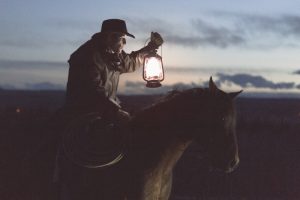
Don't Be a Lone Ranger

This is one of a series of blogs on FOA – frequently offered advice – based on common themes from my coaching work over the last 20 years.
You can probably quote any number of sayings about the importance of teamwork. It might be an overused cliché, the kind you see on an inspirational poster like “Teamwork makes the dream work.” It might be a favorite Bible verse like, “Two are better than one … a cord of three strands is not quickly broken” (Eccl. 4:9, 12). But many leaders can spit out a pithy saying without putting it into practice.
I have had plenty of occasions when a coaching client says the right things, but their behavior sounds like the Lone Ranger. This can be seen in a variety of ways, and one of the most dangerous is isolation.
Isolation is dangerous when important leadership decisions need to be made. It’s a leadership style that Jim Collins called “a genius with a thousand helpers.” In these moments, isolated leaders rely solely on their own perceptions and intuition. They deprive themselves of the rich perspective that can be gained by asking trusted colleagues for input.
Another form of isolation is “echo chamber” leadership – being surrounded by people who simply affirm what the leader is thinking. You may say, “I’m not isolated. Look at all my advisers.” But if you are never challenged and if you never find yourself saying, “I hadn’t thought of that,” then you’re more isolated than you realize.
Isolation is also dangerous when a leader doesn’t have anyone that truly knows him or her. This danger isn’t related to strategic decisions – it’s related to life. Pastors and ministry leaders can be around people all day, and not be truly known by anyone. You need someone (or even better, a handful of people) to turn to when you’re overwhelmed by stress. You need someone who cares for and prays for you, not because of your title but because they love you. You need someone who will occasionally hold up a mirror and challenge you. These people are likely to be different than the ones that help you with major organizational decisions, but they are just as important.
There isn’t a “right” formula for how to create and interact with either of these groups. But one thing is wrong – trying to lead as a Lone Ranger.
It’s easy to receive my blogs by email. Just sign-up on Feedburner by clicking here.
]]>


